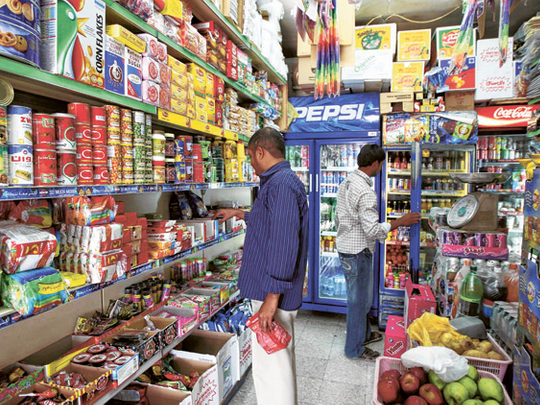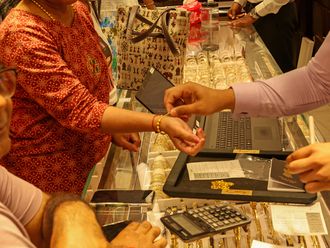
Dubai: The size of a supermarket seems to be of no importance to local shoppers as long as they get the groceries they need.
The latest retail trend suggests that Dubai residents are as likely to shop at a neighbourhood store as they are at a hypermarket.
This may explain why there's a supermarket in nearly every second high-rise residential building in Dubai.
And with many high-rise projects about to reach their completion dates, the wave of small supermarket openings is unlikely to subside any time soon.
"In the UAE, our shopper trends report shows that in 2010, the frequency of visits to all retailers has increased — from supermarkets to grocery stores," said Sevil Ermin, managing director for the UAE at The Nielsen Company. "Grocery shops are still the ones visited most frequently by all shoppers."
The smaller grocery store is not a new phenomenon in the local market.
A single store located in a residential location has access to a sizeable number of shoppers.
In fact, through the decades, up until the mid-1990s, they were the pre-dominant category in the retail industry.
It was about that time that the hypermarket concept started to become popular.
It gained substantial traction at the start of the last decade and continues even now. And until two years ago, the sentiment in the retail industry was that smaller grocery stores would be pushed to the sidelines.
But it did not turn out that way because of the UAE's unprecedented real estate boom between 2005 and 2009.
New neighbourhoods were being created during this period and every high-rise building needed a grocery store.
These trends are being mirrored in actual numbers as well.
According to the Nielsen data, the UAE now has the second highest number of retail outlets per capita in this region, driven principally by the mini-market format.
Important channel
"In this part of the world, groceries will always remain an important channel for food categories," said Ermin.
"Proximity is very important for everyday shopping and groceries are the most convenient retailers for many households. The mini-market is the emerging channel."
This is a view echoed by Dhananjay Datar, CEO of Al Adil Supermarkets, which, from a single store have evolved into a network of 19 supermarkets.
"Though the big grocery stores have been trying to capture the market with regular discounts and promotions, the smaller outlets have withstood competition, survived and managed to retain an ever-growing customer base.
"The best part is all these shops offer free delivery and make it a very convenient way to shop. They are also familiar with the details of regular customers and can tailor their services to meet their needs."
In fact, some stores even offer monthly credit to their regulars, a huge plus for a shopper trying to stay on top of a weak economy and all its attendant concerns. By securing a steady flow of loyal customers, the smaller shops have room to play in a business in which operating margins are slim.
None of this has escaped the attention of the bigger players, who have responded by coming out with their own concept of the neighbourhood stores.
Hyperactive market
No one can deny the level of power the large-format supermarkets have in the UAE's retail space. According to the Nielsen data, the ‘modern trade' represents 7.5 per cent of the total retail world, but in terms of value, its ‘all commodities value' contribution is a substantial 60 per cent.
Even then, the ‘traditional trade' holds its own, and contributes 76.5 per cent of the total retail market, while its share of the commodities value is 30 per cent. In the UAE, the traditional trade is now recording double-digit growth in the total FMCG (food and non-food categories) sale value contribution.
"Modern trade outlets will grow in number and their share in overall trade will continue to increase," said Sevil Ermin at the Nielsen Company. But "proximity is very important for everyday shopping and groceries are the most convenient retailers for many households. This is true across the GCC, more so in Saudi Arabia, where we see large groceries increasing in number as well.
"With Saudi women not being allowed to drive, this bigger grocery format is a bridge between answering the daily needs and offers variety like larger supermarkets."











